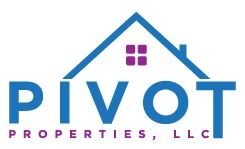
At the height of the pandemic, more than 7.2 million homeowners were in the mortgage forbearance program, which allows some borrowers to pause their payments. The economy has since posted one of the fastest recoveries in history. Now, just 1.7 million borrowers are enrolled in the forbearance program.
But soon it’ll be zero.
The Biden-Harris administration has made it clear it has no plans for another extension of the mortgage forbearance program, which is set to lapse on Sept. 30. Borrowers won’t all get removed at once, instead they’ll be phased out over a period of several months. (For details on the mortgage forbearance wind down, go here).
Nonetheless, as Fortune has previously reported, this is a major shake-up headed for the housing market. In a nation of more than 80 million homeowners, 1.7 million might not sound like a lot—until you consider there are just over 600,000 homes for sale right now on realtor.com. In fact, this year housing inventory hit a 40-year low. So, if even a small percentage of these 1.7 million struggling borrowers opt to sell—rather than returning to their monthly payments—it could cause a shock in the housing market.

Back in July, Fortune reached out to researchers at Home.LLC, a startup that provides down payment assistance to homebuyers in return for a share of profits, to forecast how the end of forbearance would impact the market. They found the end of the program is likely to see U.S. inventory—homes for sale—rise by 11% later this year. While that’ll hardly shift the housing market from a seller’s market to a buyer’s market, it would soften the market a bit.https://27d9c37bf8c00ca7b0cbe3c942484be3.safeframe.googlesyndication.com/safeframe/1-0-38/html/container.html
Even before mortgage forbearance ends, the market is already starting to cool. After seeing housing inventory plummet over 50% between April 2020 to April 2021, it’s moving up again. Inventory levels ticked up 8.8% in June, and another 10.4% in July. Over the past year, median home prices are up 17.2%, according to real estate research firm CoreLogic. In the coming 12 months, CoreLogic foresees that slowing down a bit, to just a 3.2% appreciation.
But don’t expect the end of forbearance to sink the market. A housing market crash is very unlikely: In the short term, a wave of demographics and years of under-building will ensure, industry insiders tell Fortune, that demand outmatches supply.
A foreclosure meltdown is also unlikely. The strong housing market means most of these struggling homeowners have positive home equity. So if these homeowners decide to walk away, they can simply sell. That is very different from what happened during the Great Recession: Millions of underwater borrowers, with mortgage balances greater than their home’s value—were forced to sell. But we could still see a lot more inventory in the coming months.

